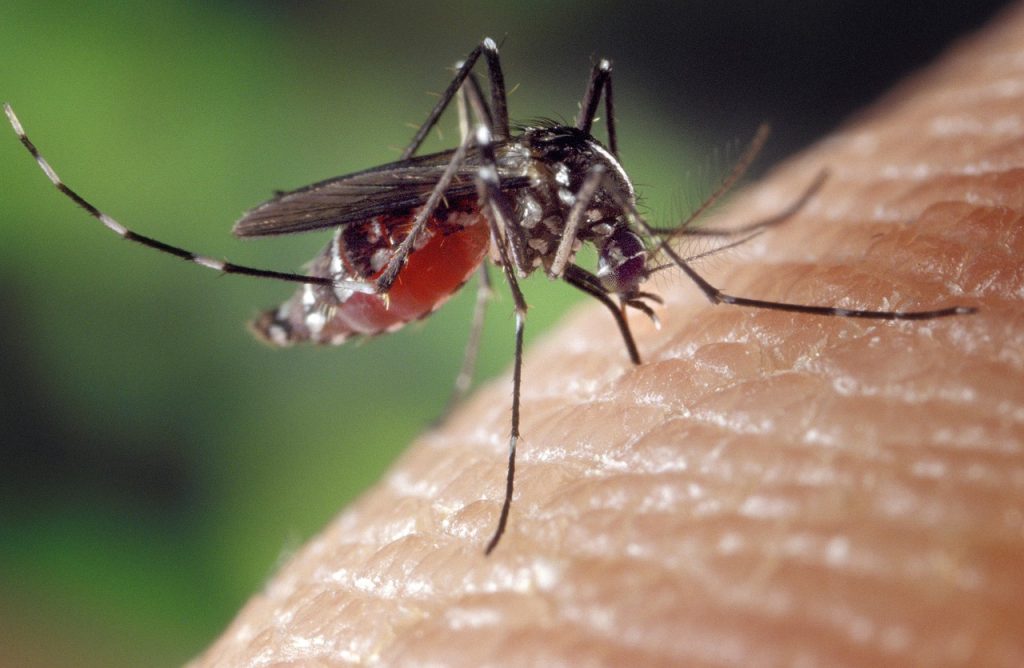A few weeks ago, we heard that West Nile Virus was found in mosquitos in our area, now EEE is all over the news! Not only is this disease in the NEK but in the broader New England region, which may have you wondering, is it safe out there?
The Centers for Disease Control and Prevention (CDC) warns about EEE which means: Eastern Equine Encephalitis, being a rare but serious viral disease transmitted by mosquitoes. While it affects horses (equine), it can sometimes infect humans, which we now see in our area. This disease can lead to severe neurological complications, hence the increase in public health concerns and worth raising awareness about.
As individuals, when EEE impacts the public, it’s important to be aware of the impact because the impacts are extreme. Symptoms can start like many other things: mild and flu like fever, headache, vomiting, diarrhea, seizures, drowsiness, etc. However, with EEE, symptoms can increase to severe neurological issues like confusion, seizures and coma. In the NEK, our exposure risk is high with increased outdoor exposure during mosquito season, but anytime anyone has these symptoms they should seek medical support. The CDC reports that “Approximately 30% of people with eastern equine encephalitis die, and many survivors have ongoing neurologic problems.”
This news can be overwhelming and while there are no vaccines to prevent EEE or medicines to treat it, preventing EEE is possible and important! Here are crucial steps we can all take to reduce the risks of EEE right now:
- Avoid Mosquitoes: Stay away from areas with standing water where mosquitoes breed.
- Use Repellents: Apply insect repellents containing DEET, picaridin, or oil of lemon eucalyptus when outdoors.
- Wear Protective Clothing: Wear light colored, loose fitting and heavier material clothing: spandex and polyester aren’t great choices, opt for: denim, wool, and nylon ripstop. Choose long sleeves and pants to help reduce skin exposure. Wear clothing and gear treated with permethrin.
- Use mosquito netting. You can wear tightly woven nets made from polyester or even buy outdoor tents! From hats to gazebos…the consumer culture has you covered, literally. Netting should be pulled down over your face and secured, ideally tucked into your clothing. Suspended mosquito netting is also advised if sleeping outdoors to cover you while sleeping.
- Limit Outdoor Activities During Peak Hours: Mosquitoes are most active during dusk and dawn. (However, if you see them, they are active!)
- Check Your Home. Fix any holes in your screens, don’t open windows without screens, and remove standing water around your home if you can. If you have water collecting receptacles, empty them regularly!
Being told to stay inside this time of year can be hard! We know the fair weather is limited. There are still sports games, events and other reasons we just can’t avoid the outdoors right now. What should you do if you get a mosquito bite?
- Clean the bite area with soap and water.
- Monitor for any unusual symptoms that may indicate an allergic reaction or infection.
- Calmly monitor for Symptoms of EEE. Symptoms typically appear 4 to 10 days after being bitten by an infected mosquito. Early signs include fever, chills, fatigue, and headache. If you experience severe symptoms such as confusion, seizures, or loss of consciousness… IF these arise: Seek medical attention immediately.
Vermont isn’t ignoring the threat of EEE, Health Commissioner Mark Levine, MD, said in a press release. “Vermont data, and current virus activity around New England shows we need to take the threat of EEE very seriously. If you live in a town at high risk, please avoid spending time outside in the evenings when mosquitoes are most active to protect yourself from this potentially severe illness.” The healthvermont.gov website has been keeping up to date with information on EEE activity, sharing that it tends to peak during late summer into early fall when temperatures allow mosquitoes to thrive. The hope is that when temperatures drop in late autumn it will reduce the risk of transmission. Until then, we need to remain aware and proactive in combating EEE. While this news is worrisome and disappointing, it also reminds us of all the ways we can protect ourselves outside from many insect-borne illnesses. Stay safe out there!


